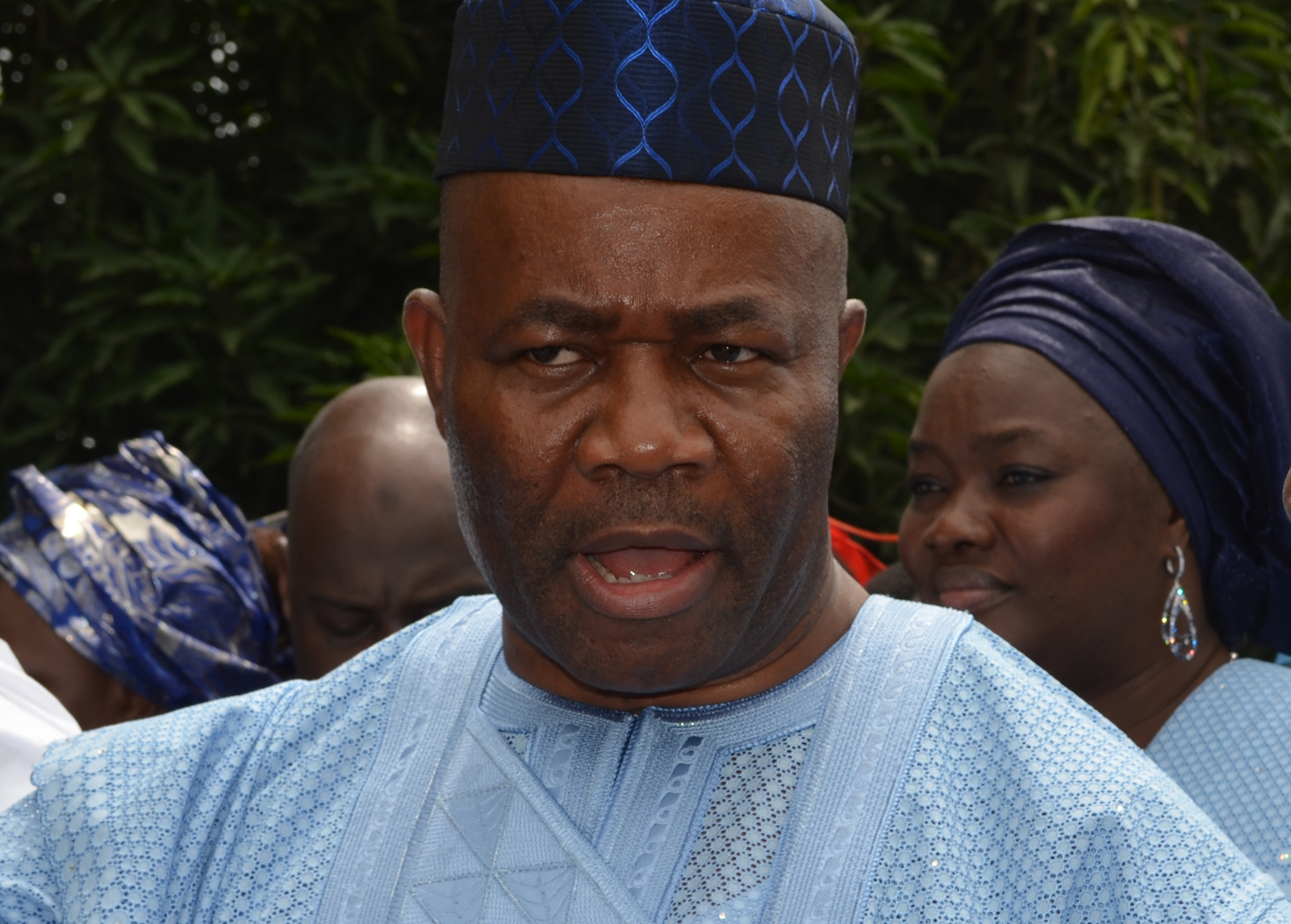Akwa Ibom State Governor, Chief Godswill Akpabio, yesterday promised to write to the state House of Assembly to repeal the amendments to the state Governors and Deputy Governors’ Pension Law.
The law, which was last week assented to by the governor after it was passed by the state lawmakers, has come under severe criticism by a cross section of Nigerians.
The law had specifically pegged the amount former governors and deputies could spend annually on medical bills to N100 million and N50 million respectively.
But this was misrepresented by the opponents of the state government while the figures attributed as the medical pension benefits to be enjoyed by ex-governors of the state and their deputies were grossly exaggerated.
Akpabio, in a statement made available to journalists in Lagos on Tuesday, June 3, 2014 said after due consideration of the misinformation and the opposition in the state, he would ensure that the lawmakers expunge the provisions putting a ceiling of N100 million and N50 million on the medical treatment of former governors and deputy governors of the state respectively from the law.
He asked the lawmakers to maintain the status quo by reverting to the open-ended situation inherent in the law before it was amended.
The governor, who said he was deeply saddened by the vilification of the state lawmakers for undertaking a course of action, which should have been applauded, added he would as an interim measure use his executive fiat to set up a medical council that would verify all future medical claims by former governors and deputy governors of Akwa Ibom.
But in the long-term, he said, a new legislation would be proposed to cater to a health insurance scheme for former executive office holders in the state.
The governor, who chronicled how the law was enacted in 1998 and amended in 1999, 2002 and 2007, stated that prior to the current amendment, it was being abused because of the lacuna in it.
“The Governors And Deputy Governors Pension Law was first enacted in 1998 as the Special Grant (Former Chief Executives) Edict. It was amended in 1999 by the Special Grant (Former Chief Executives (Amendment) Edict of 1999) and was retained in Cap. 122 Laws of Akwa Ibom State 2000.
“It was amended in 2002 by the Governors and Deputy Governors Pension Law 2002, which was later repealed by the Governors and Deputy Governors Pension Law 2006 assented to by my predecessor in office on 26th April 2007.
“In the course of its implementation, We noticed a lacuna in the 2007 law, particularly on account of its open-endedness in the provisions relating to the medical expenses and provision of funds for the employment of domestic staff for the former governors and deputy governors and working with the House of Assembly, we sought to protect the law from abuse by putting a ceiling on the medical expenses for the treatment of these senior citizens of Akwa Ibom State.
“The ceiling, which was pegged at N100 million per annum for former governors and N50 million per annum for former deputy governors, was never meant to be given either in part or in whole to anybody at anytime for any reason.
“It was meant to be paid to health institutions involved in the treatment of the former governors or former deputy governors and their spouses. It was, therefore, deliberate falsehood and organised misinformation to claim that the said money will be paid to former governors or deputy governors every year. This has never been the practice and the amendment has added nothing to give credence to this obviously politicised orchestration.”
Explaining further, Akpabio said: “In the course of its implementation, We noticed a lacuna in the 2007 law, particularly on account of its open-endedness in the provisions relating to the medical expenses and provision of funds for the employment of domestic staff for the former governors and deputy governors and working with the House of Assembly, we sought to protect the law from abuse by putting a ceiling on the medical expenses for the treatment of these senior citizens of Akwa Ibom State.”
He recalled that he had been compelled to sign off on several medical bills submitted by his predecessors and deputy governors that could not be verified, therefore necessitating the amendment that would have placed a cap on medical expenses.
Former governors and deputy governors and their spouses who were not sick, Akpabio explained, “Were not to receive a dime from the fund. These sums, which were for the governors and the deputy governor’s medical treatment, suffered the most bashing from a mischievous vocal minority who sought to reap political capital out of it.
“In their frenzied desperation, they even claimed that the law was made for my personal benefit. They lost sight of the fact that I am not among the beneficiaries as I am not on pension,” he said.
Akpabio stated that he was optimistic that with the excision of the controversial sections from the amendment, “the agents of falsehood would lift their siege on the truth and not distract the good people of the state from the task of the uncommon transformation of our dear state.”







